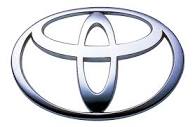Camry Wagon V6-2507cc 2.5L DOHC (2VZ-FE) (1988)
/Page-1193009.png)
2 Proceed as above to the remaining affected areas of the vehicle.
3
After all of the affected areas have been sanded,
follow with a fine machine rubbing compound and
machine buff to remove the sand scratches from the
paint surface.
4
Continue this procedure by following Steps 3
through 7 from the Class 2 Repair Procedure.
5
Observe good judgement in the sanding procedure to
avoid removing more clearcoat or color than is necessary. Remember that if there is some doubt concerning the integrity of the repair, do not
hesistate to consider spraying a coat of clear or color as directed in Class 4 repair procedure.
CLASS 4 REPAIR PROCEDURE
1
Completely sand the affected areas with #1500-
#2000 grit paper an required to eliminate the pitting caused by the contamination. [NOTE : NON-CLEAR COAT VEHICLES SHOULD BE
PAINTED AFTER SANDING FOLLOWING NORMAL PROCEDURES.]
2
Clean the panel with an appropriate silicone/wax
remover (DuPont 3939, PPG DX330 or equivalent)
METALLIC/PEARL COAT VEHICLES
3
Apply a bonding clear coat or midcoat adhesion
promoter as appropriate:
[FOLLOW THE PAINT MANUFACTURER'S RECOMMENDATIONS FOR SPECIFIC APPLICATION AND DRYING TIMES.]
PPG (DITZLER) DSX 1900
(or equivalent)
DuPont
9222S
4 Follow with a urethane or polyurethane clear coat:
[FOLLOW THE PAINT MANUFACTURER'S RECOMMENDATIONS FOR SPECIFIC APPLICATION AND DRYING TIMES.)
PPG (DITZLER) DAU 82
(or equivalent)
DuPont
9280S (polishing recommended)
9500S (polishing not recommended)
1080S (polishing not recommended)
